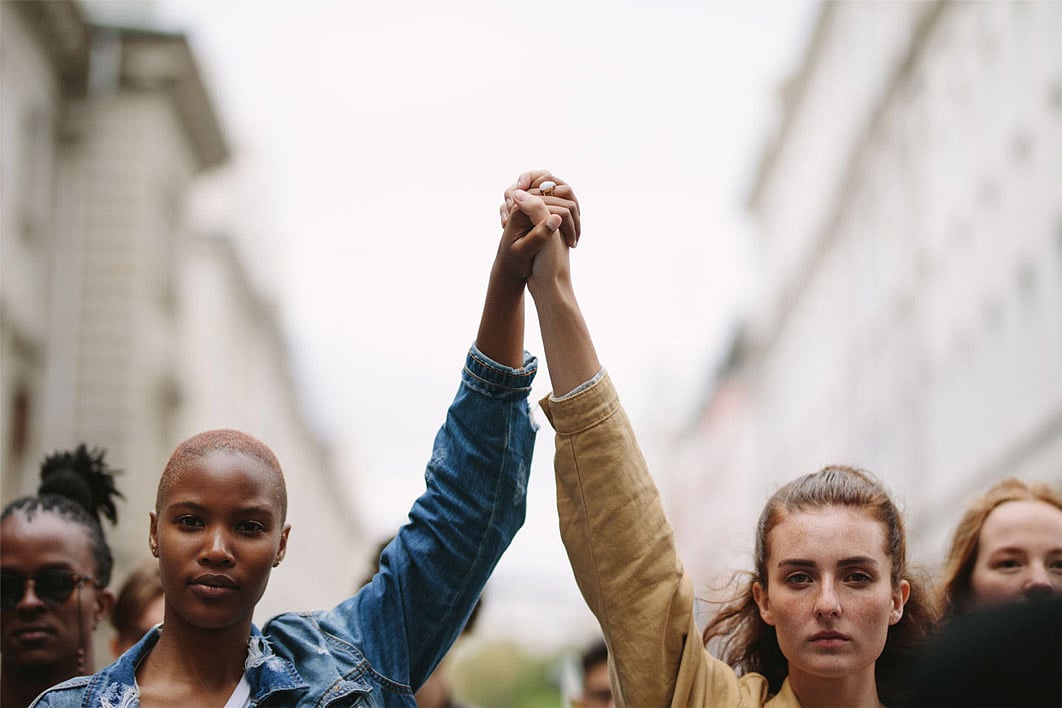
THE STAGNATION OF FOCUS ON GENDER BASED VIOLENCE (GBV) IN SOUTH AFRICA
The long-awaited National Council on Gender-Based Violence and Femicide Bill was finally published. While the gazetting of this Bill is a major step forward in driving a multi-sectoral, coherent strategic policy and programming framework to ensure a coordinated national response to the crisis of Gender-Based Violence and Femicide, civil society initiatives continue to bridge the gap.
1st for Women looks at where we are at with three government-level interventions towards ending GBV: the National Council on Gender-Based Violence and Femicide (NCGBVF), the DNA backlog, and Life-Skills curriculum delivery in public schools.
NATIONAL COUNCIL ON GBV
The establishment of the National Council on Gender-Based Violence and Femicide (NCGBVF) was one of the key promises made by President Cyril Ramaphosa in 2019. The NCGBVF is tasked with implementing the National Strategic Plan on GBVF. Without the NCGBVF there can be no effective action against GBV by the government.
In 2019 an Interim Steering Committee (ISC) was created to establish the NCGBVF, but the ISC was unable to complete its mandate before being dissolved. The Commission on Gender Equality has noted that beyond failing to fulfil its mandate, the ISC lacked transparency and accountability in its operation.
The task of establishing the NCGBVF then fell to an Inter-ministerial committee (IMC). The IMC’s work to establish the NCGBVF was marred by the exclusion of civil society organisations, a seemingly deliberate circumvention of legislative accountability and further delays.
Instead of following the correct process to draft legislation for the establishment of the NCGBVF, the IMC created an executive body with no accountability to take on the task of establishing the NCGBVF. This would have been the third body to take on the mandate, however, the Commission on Gender Equality found that the structure of the executive body appeared to take on the role of the NCGBVF. This move appeared to be a disingenuous attempt at skirting responsibility while millions of South Africans were left defenceless in the face of the GBV epidemic.
After public outcry, which prompted parliamentary intervention, the Department of Women, Youth and Persons with Disabilities (DWYPD) course corrected by drafting legislation for the proper establishment of the NCGBVF.
In a meeting of the Portfolio Committee on Women, Youth and Persons with Disabilities on 15 March this year, Member of Parliament, Honourable Nazley Sharif, stated the Portfolio Committee is well aware of the many delays that have taken place.
While presenting a petition regarding the establishment of the NCGBVF she stated that “it is no surprise Honourable Members that civil society agrees with us as the PC that this needs to be prioritised and implemented as soon as possible.” She then urged the DWYPD to fast-track the establishment of the NCGBVF.
PROGRESS
Minster in the Presidency for Women, Youth and Persons with Disabilities, Maite Nkoana-Mashabane announced the publication of the National Council on Gender-Based Violence and Femicide Bill, 2022 (“the Bill”) on 30 September 2022. The purpose of the publication was to inform the public that the Minister intends to introduce the Bill in parliament in terms of section 73 of the Constitution.
THE DNA BACKLOG
Processing criminal cases, including sexual abuse cases, depends heavily on Deoxyribonucleic Acid (DNA) analysis. Disconcertingly, there are 58 000 cases awaiting analysis in South Africa’s DNA backlog. This can be discouraging for survivors of crime, who might lack the confidence to report an incident due to apparent capacity deficits at police stations.
To this end, the Criminal Law Bill - Criminal Law (Forensic Procedures) Amendment Bill (B25 - 2021) (CO Bill) was introduced. This will help with more efficient processing of DNA. Until now, there has been a risk of further offences without detection. The amended Criminal Law Bill implies, amongst other things, that previously unrelated crimes can be tracked and linked if there is a repeat offender.
“The release of prisoners back into society prior to having a search of their DNA profile on the national DNA database potentially misses the opportunity to identify a serial rapist as well as provides an opportunity to reoffend without detection,” says Dr Vanessa Lynch of DNA for Africa. She adds, “If the DNA backlog is a concern, the police can easily prioritise at the very least those convicted offenders who are due for parole prior to being released.”
An important distinction is made by Dr Lynch: “Note the difference between ‘cases’ and ’samples’. The DNA backlog refers to cases, and there are probably between 3-10 samples per case. This means the number of DNA samples in backlog is well over a million.”
PROGRESS
Despite the delays, there are some signs of progress. As of 25 May 2022, a budget of an additional R100 million was allocated to support all programmes related to GBVF Action Plans and FCS Unit Resourcing.
Another R50 million was set aside by Police Minister Bheki Cele to support all buccal samples and collection kits operations.
GBV EDUCATION
Violence at school-level manifests itself especially in bullying, which can be physical, verbal or virtual (ie. cyberbullying). As many as 57% of high schoolers have reported experiencing bullying at some point in their secondary school career, according to 1000 Women Trust. The Centre for Justice and Crime Prevention found in 2013 that “most of the incidents of violence in schools are perpetrated by learners themselves”. This shows the significance of addressing learner behaviour through education.
In 2016, the Department of Basic Education (DBE) published a National School Safety Framework. DBE Minister Angie Motshekga described this as “minimum standard” for holding schools, districts, and provinces accountable to foster safe schools. The National School Safety Framework, together with the National Strategic Plan on Gender-Based Violence are remarkable documents on educating children towards ending violence.
However, the challenge is not policy - it is practice. There is little ‘on the ground’ evidence of government implementation of the aforementioned policies.
Recent case-study research carried out on behalf of 1st for Women has shown the work of non-profit organisations (NGOs), which, in large part drive transformative education towards non-violence among children. Organisations such as Masimanyane Women’s Rights International, Action Breaks Silence, Regional Psychosocial Support Initiatives (REPSSI), The Justice Desk and others are examples of NGOs that bridge the gap.
Action Breaks Silence, for example, is a partner of the 1st for Women Foundation and has a flagship project in primary schools in Diepsloot. In 2021, the organisation reached 1 417 primary school learners (grade five to seven) in five primary schools. A further 1800 young women in grades eight to 11 were reached by the same organisation, through community-level workshops on topics like recognising indications of potentially dangerous behaviours by perpetrators.
Participants have noted that following the workshop they feel less fearful, more empowered, and more capable of defending themselves with tools they could immediately put into action.
According to the head of Reshomile Primary School’s Life Skills and Life Orientation department: “Usually, we'd see a number of cases of bullying or cases of learners waiting for others outside so that [they] can fight. However, since the programme started, our incident report book is empty. I believe this programme is a success.”
“It helps if everyone is speaking about the same thing,” Programme Manager Niki Hall-Jones puts it simply. Staff and volunteers of GBV organisations are clear about the need to facilitate conversations between generations and genders.
Another partner of 1st for Women is the Regional Psychosocial Support Initiative (REPSSI). Celeste Mattross, Country Director of REPSSI South Africa, explains the ground-level status of violence education in schools: “Typically this is due to happen in Life Orientation (LO) classrooms, but teachers have come forward to ask for help in delivering the LO curriculum.”
PROGRESS
The future of reducing school-level violence seems to be in relevant and relatable education, delivered by partner organisations. While we wait for government to deliver, stakeholders outside the classroom hold the key to safe schools.
CONCLUSION
The Criminal Law Bill - Criminal Law (Forensic Procedures) Amendment Bill (B25 - 2021) (CO Bill), National Strategic Plan on Gender-Based Violence and the National Council on Gender Based Violence and Femicide Bill are key pieces of legislation which can create progress in ending violence against women and children.
While we wait for approval and implementation at government-level, we will continue to be reminded that there is a war being raged on women’s bodies and their safety is under constant threat.
According to statistics released by the SAPS, over a three-month period (January to March 2022), murder, attempted murder and the assault of women all recorded double-digit increases and over 10,800 rape cases were reported.

We Have Great
Insurance Products
At 1st for Women we know that each
woman is an individual who has
different needs.
Related Posts





